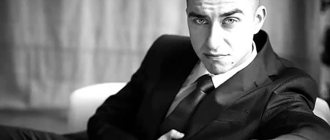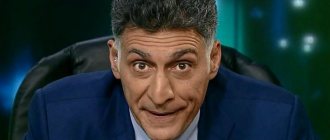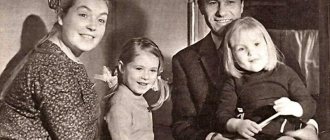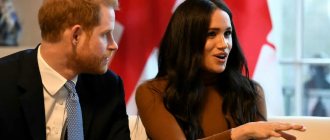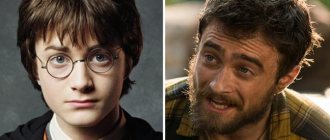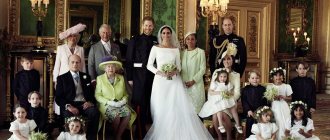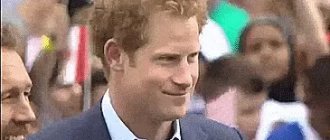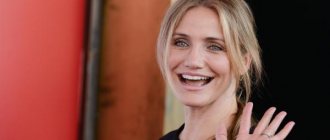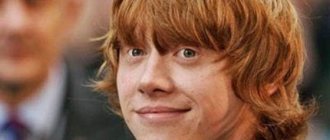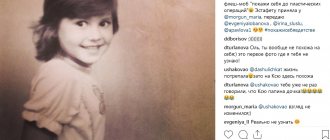In the chess world, Garry Kasparov was never called anything other than “The Great and Terrible”. The famous champion left the sport at the peak of his fame. Some are convinced that it is in vain, while others say that it is on time. Nevertheless, the great grandmaster has something to tell about himself, because Garry Kasparov’s biography, personal life and children are of interest to many of his admirers. And today’s activities of the champion cause a lot of talk in society.
Today, the former chess player has devoted himself almost entirely to politics and is a prominent positionator, accusing the Russian government of unleashing an armed conflict in the Donbass and annexing the Crimean Peninsula. But first things first.
So, below is the biography of Garry Kasparov: personal life, children, sporting achievements and other interesting moments from the life of the great grandmaster.
Childhood
The future champion was born in Baku on April 13, 1963. The boy's parents were intelligent people and kept themselves apart from the lower, so to speak, working class. As for the nationality of Garry Kasparov, this point caused a lot of controversy in sports circles.
The fact is that the chess player’s father (Kim Moiseevich) is Jewish, and his mother (Klara Shagenovna) is Armenian. Both he and the other were purebred almost to the fifth generation. Therefore, in the sports community, both Jews and Armenians, as they say, each pulled the blanket over themselves, disputing the nationality of Garry Kasparov in their favor. However, in the Soviet Union he was considered an Armenian and simply a Soviet citizen.
The parents of the future grandmaster worked as engineers and staged chess battles almost every evening. It was thanks to them that Garry Kasparov became so passionate about this sport. Starting at the age of five, he began to master the basics of chess art. And this absorbed him so much that he did not need any toys, or the street, or other yard delights. Only chess, books and newspapers.
Childhood and youth
Garik Weinshein (1974)
Garry Kimovich Kasparov (né Weinshein) was born on April 13, 1963 in Baku. Garik's parents - father Kim Moiseevich Weinstein (Jewish by nationality) and mother Klara Shagenovna Kasparova (Armenian) were engineers. Until the age of 11, Harry bore his father’s surname, but his mother, frightened by the growing anti-Semitic sentiments, decided to give him her surname.
According to some reports, the parents discovered their son’s remarkable talent when, at the age of 5, he helped his father solve a chess study. According to Soviet tradition, the boy was sent to a section at the house of pioneers. After the death of her father, who died of sarcoma, her mother resigned from the research institute and devoted herself entirely to the career of the future champion.
Despite his childhood dreams of becoming a doctor (he wanted to save his terminally ill father), his first serious successes came in chess - at the age of 9 Kasparov was a first-class master, and at the age of 10 he was already a master's master. Soon he leaves to study at Botvinnik’s school, where he ended up on the recommendation of his future mentor Alexander Nikitin.
Garry Kasparov and the greatest chess coach Alexander Nikitin
Already at this time, maestro Botvinnik noted the remarkable analytical abilities of the Baku native. “This is an exceptional chess talent, very reminiscent of Alekhine, but very subjective and hasty in his decisions,” Botvinnik said about his student.
Mikhail Botvinnik himself works with young Garry Kasparov
The year 1980 was marked for the future chess king by being awarded the title of grandmaster (at the age of 17) and graduating from school with a gold medal. The young man had the broadest prospects, but Harry entered the Baku Pedagogical Institute of Foreign Languages, which he graduated with success.
Garry Kasparov with his mother, Klara Shegenovna
Youth
At the age of twelve, a turning point occurred in the biography of Garry Kasparov: the young prodigy became the champion of the Soviet Union in chess among youths. Since then, this sport has become the meaning of his whole life for him.
By the age of seventeen, Garry Kasparov (photos presented in the article) received the title of Master of Sports. At the same time, the chess player graduated from school, with a gold medal, and then entered the local pedagogical university in the department of foreign languages. Harry was accepted into the institute after passing one single exam, which, by the way, he passed with a solid five points.
In 1980, Garry Kasparov, already known throughout the Union, was awarded the title of grandmaster.
After his father's death in 1970, the talented chess player's mother became more than a parent to him. She was his coach, mentor and devoted herself entirely to her son and his career. Klara Shagenovna was with him almost everywhere. Championships were held not only in the Union, but also abroad, and Garry Kasparov’s mother followed her son everywhere and solved all his problems, from domestic ones to some kind of professional friction.
It was then that she decided to radically change the grandmaster’s image, changing not only Harry’s nationality, but also his last name. So after 1980, he ceased to be the Jewish chess player Weinstein, but turned into the Armenian Kasparov.
The first successes and failures of chess player Garry Kasparov
1973 was a turning point for the genius.
This year, the still very young genius went to Vilnius as part of the Azerbaijani national team, where he met his future coach, friend and mentor Alexander Nikitin. It was on his recommendation that the Baku native ended up in the world-famous Botvinnik correspondence chess school. And there he very soon became an assistant to the chess patriarch himself. Even then, Botvinnik noted the unique analytical abilities of the young talent. And the sixth world champion was never wrong in such matters.
By the way, Garik became Kasparov, not Weinstein, only in 1974. Then his mother, for the sake of her son’s chess career, changed not only his nationality, but also his surname. Since then, the young Jewish chess player became an Armenian. In the same year, Garry Kimovich participated for the first time in the all-Union tournament between the palaces of pioneers. And already in 1975 he was the leader in the USSR championship among youths. True, an unsuccessful finish threw him far away, to seventh place. But given the young man’s age and the strong composition of the tournament, it was a sensation.
In 1976, at the age of 12, the Baku resident finally won this tournament. Then they started talking about him seriously in the highest chess circles of the Land of Soviets. The country that occupied the unconditional leadership in the chess world.
Eight-year-old prodigy against Garry Kasparov In 1978, after much controversy, the young Master of Music was allowed to participate in a tournament with the participation of grandmasters. Garik won the Sokolsky Memorial ahead of schedule. And this despite the fact that 5 rounds before the finish he had already achieved a master’s standard. That same year, the future champion won the qualifying tournament for the country's top chess league.
In 1979 he won a fairly strong international tournament in Banja Luka.
True, he got to this tournament only thanks to the indisputable authority of the patriarch of Soviet chess. Without Botvinnik's recommendations, Garik might not have been able to travel abroad.
At the same tournament, the young master exceeded the norm for an international grandmaster. For such achievements, Heydar Aliyev himself, the first secretary of the Central Committee of the Communist Party of Azerbaijan, took him under his wing. And the chess genius did not let him down. He brought home a bronze medal from the USSR Championship, the strongest tournament in the world.
Career
The career of Kasparov Garry Kimovich is replete with victories and all sorts of awards. The venerable grandmaster took first places in various championships and chess competitions for 13 years. At that time, Harry’s Elo rating reached 2800 points, and this is an exceptionally highly professional level.
After unpleasant events in 1990, when brutal reprisals against Armenians began in his homeland, he was forced to leave Azerbaijan and moved to the capital of the USSR. A little later, in 1993, Harry left the International Chess Federation, while creating its analogue - the Professional Chess Association.
Later, in 1996, the grandmaster organized a virtual sports organization - the Kasparov Club. The resource gained popularity year by year, and already in 1999, the famous chess player beat all users on the Internet in a match that was organized by. At that time, this game with all non-professional chess players, which lasted almost four months, was watched by more than 3 million users of the World Wide Web. This indicator still cannot be beaten by any virtual chess resource.
Dissenter
Back in the late 80s. Garry Kimovich entered into a desperate struggle against the almighty FIDE. Then he initiates the birth of the International Association of Grandmasters. Later, categorically disagreeing with the policy of the world chess organization, he, together with N. Short, announced in 1993 a match against each other under the auspices of the newly created Professional Chess Association. This led to the grandmaster's temporary exclusion from the FIDE rankings, where he was soon reinstated. After the dissolution of the PCA, Kasparov took part in the creation of a new opposition structure of the World Chess Council.
Kasparov vs Deep Blue
In 1996, the leading corporation at the time, IBM, challenged Kasparov, inviting him to oppose their most advanced computer, Deep Blue. The designers assured users that the machine was capable of processing up to 200 million moves per second and making decisions with proper competence.
Kasparov won the competition with a good score - 4:2, but lost to a computer opponent in the first game.
The next time Deep Blue and the great grandmaster met was a year later, in 1997. The game was difficult and tense for Kasparov. And on move 46, the famous chess player admitted defeat and surrendered to the computer. After the game, Harry asked for detailed logs of the game, suspecting human interference in the process, but the company refused him, citing trade secrets.
The fight between man and computer
In 1996, the creators of computer technology challenged the champion and he accepted it without hesitation. Based on curiosity and interest, the genius chess player enters into a battle with the machine. The first match leaves the man victorious, although Kasparov loses one game. And in May 1997, during the second match, Kasparov was defeated and the computer became the winner of the match.
After losing 2 more times, the grandmaster enters into a chess battle with the machine. Both times the result is a draw.
Years later, Kasparov’s interest in computer technology does not fade and several interesting chess programs are released in his name.
Champion
In 1985, the chess player officially became the thirteenth world champion. Sports experts called the game of Karpov and Kasparov enchanting. But the previous champion was unable to retain his title and lost it to the newcomer. Kasparov managed to cleverly play the little-used Nemtsovich Defense and win the first game. Neither one nor the other gave in and held on until the end, reducing the pieces to a draw. But by the end of the 16th game, Harry won a spectacular victory and won the World Championship.
Kasparov became the youngest grandmaster. During the game with Karpov he was 22 years old. Only the athlete from Norway Magnus Carlsen, who also turned 22 when he took the champion title, was able to win such a “youth” record.
Chess
In 1985, Kasparov became the 13th world champion in chess history, defeating Anatoly Karpov. The fight, which took place in Moscow, would later be called an example of an enchanting game.
Garry Kasparov managed to become the youngest world champion at 22 years, 6 months and 27 days. The chess player had a serious rivalry with Anatoly Karpov, who became his main competitor on the world chess arena. Their rivalry was called "the two Ks."
For 13 years, Harry was the constant leader of the prestigious Elo rating with 2800 points, and thanks to numerous victories at world chess championships, he took his place in the ranking of the best professionals.
View this post on Instagram
A post shared by Barcelona & Chess! ♟ (@chess_barcelona) on Nov 17, 2020 at 6:51am PST
In 1996, the world chess champion created the virtual Kasparov Chess Club, which became popular on the Internet. At the same time, Harry's game against the supercomputer Deep Blue was initiated. The first meeting was won by the chess player, the victory in the second went to the machine.
And in 1999, Kasparov won a match against all users of the World Wide Web, organized by Microsoft. Then the tense and exciting game of the chess king with amateur chess players, which lasted 4 months, was watched by more than 3 million people.
In 2005, Harry announced that he was leaving professional sports for politics, as he had achieved everything he wanted in chess.
End of career
In 2005, the grandmaster decided for himself that he had achieved everything he wanted in chess and told his fans that he was leaving this sport. As an alternative to the board and pieces, Harry preferred politics, declaring that in Russia there are a dime a dozen colonels and generals, but too little intelligence.
It was precisely the latter that he decided to compensate with his presence, deciding, with the help of his talent for comprehensive and including strategic thinking, to change the Motherland for the better and contribute to its development. Some perceived such impulses very enthusiastically, but a good half of the grandmaster’s fans, as well as politicians, were quite skeptical about this.
Over the next years, the chess player devoted himself almost day and night to the opposition movement “United Civil Front” that he created. The main policy of the party was aimed at counteracting the current leadership of the Russian Federation. The serious political life of the famous chess player began with this movement.
Together with his comrades in the movement, Karpov opposed the actions of Russian President Vladimir Putin and his team. Garry Kimovich organized marches of dissent under his banners wherever possible, for which he was detained by law enforcement more than once.
A little later, in 2008, Kasparov created a new democratic movement and called it Solidarity. The latter, again, was aimed at fighting the current government, where the main priority was the resignation of the president.
Not everyone liked the chess player’s radical plans and ideas, so he did not receive support from the media. He also did not become a member of the Opposition Coordination Council. Alexey Navalny was ahead of Garry Kimovich by a fairly large margin.
After all these ups and downs, the chess player moved with his family to America and settled in New York. In 2013, he stated that he was not going to return to the Russian Federation and would fight the Russian authorities where he lived. Garry Kasparov continues to fight “Kremlin crimes” from abroad at the international level. It is also worth noting that in 2014, the chess player’s main website was blocked by Roskomnadzor for calls for extremist actions.
After the events in Ukraine in 2014, Kasparov openly supported the leadership in Kyiv and, using all available means, accused Russia of seizing the Crimean Peninsula and supporting the military militia in the Donbass.
Kasparov strongly calls on Europe and the United States to increase pressure on the Russian President with the help of sanctions and other political instruments. Then, in 2014, Harry Kimovich repeatedly visited the capital of Ukraine and gave a simultaneous game to everyone in support of the authorities.
A year later, Kasparov wrote a book where he presents to readers his vision of the situation in the world and the problems of modern Russia in particular. In his publication, the chess player speaks extremely negatively about the current government in the Russian Federation and specifically about Vladimir Putin. Kasparov assigned one of the key roles in modern history to Ronald Reagan, who in the 1980s did a lot to put an end to the “Evil Empire.”
Political career and scandals
In 2005, after leaving professional chess, Garry Kimovich plunged headlong into politics, becoming one of the ardent critics of the current authorities. But he took his first steps in this field much earlier. Back in 1990, Kasparov was involved in the birth of the Democratic Party, and 3 years later he actively supported the government’s political project “Russia’s Choice”. With the beginning of the 2000s, he moved into the camp of irreconcilable opposition. Kasparov managed to participate in the activities of a number of protest organizations - Solidarity, the National Assembly of the Russian Federation, the All-Russian Civil Congress and a number of others. He was also on the coordination council of the Russian opposition.
Kasparov’s detention near the Khamovnichesky Court building in Moscow in August 2012. Harry Kimovich came to support the members of the Pussy Riot group who desecrated the Cathedral of Christ the Savior. The police accused Kasparov of allegedly biting one of the employees during his arrest.
Having moved to the United States in 2013, he continues to confront the authorities. In 2014, his resource kasparov.ru was officially blocked at the request of the General Prosecutor's Office of the Russian Federation. That same year, he condemned the annexation of Crimea to Russia, declaring that the peninsula should rightfully belong to Ukraine.
In 2014, Kasparov lost the FIDE presidential election to Kirsan Ilyumzhinov, later declaring that this international organization had turned into a structure covering the activities of the Russian intelligence services. Alas, the story did not end there. Back in January 2014, American reporters talked about a contract that Kasparov allegedly concluded with the head of the Singapore Chess Federation, Ignatius Leongos. According to the contract, Kasparov had to pay $1 million to the Singaporean if he provided him with full support in the elections of the FIDE President.
Later it became known that this was only a draft contract. In the final agreement, the bribe was veiled, the money was transferred “to support the development of chess in the country.” As a result, Kasparov not only lost the election to Ilyumzhinov, but also tarnished his reputation. The delicacy of the situation was that the ardent fighter against corruption turned out to be an air conditioner. After this incident, Kasparov was given the nickname “Dirty Harry”.
Personal life of Garry Kasparov
The children of the great chess player are much more willing to talk about their father, while he himself tries to avoid uncomfortable questions about his personal life. As such, the grandmaster's personal life began when he turned 21.
The already famous chess player met a popular actress, Marina Neelova, at one of the social events. For many, she remained the capricious little princess from the “Old, Old Fairy Tale.” The actress differed from other stage personalities with her diminutive size, plump lips and delicate taste.
[edit] Biography
[edit] Early years
Harry Weinstein was born on April 13, 1963 in Baku (in the Armenian district - "Armenikend" - on Yerevan Street) in Azerbaijan into an influential family. His father is a Jew, power engineer Kim Moiseevich Weinstein[4], his mother is a Karabakh Armenian, engineer, specialist in automation and telemechanics Klara Shagenovna Kasparyan (Kasparova)[5]. Maternal grandfather - Shagen Mosesovich Kasparov - oil engineer. His paternal grandfather, Moses Rubinovich Weinstein, was a composer and conductor, head of the musical department of several drama theaters in Baku. His father’s younger brother, Leonid Moiseevich Weinstein, a composer, Honored Artist of Azerbaijan, was married to the sister of Abdurakhman Vezirov, the USSR Ambassador to Pakistan and the Second Secretary of the Central Committee of the Komsomol of the Azerbaijan SSR, who headed under M.S. Gorbachev of the Central Committee of the Communist Party of Azerbaijan. Grandmother is a high school music teacher. Cousin - Timur Weinstein - television producer. My father’s cousin was the father of Yulia and Mikhail Gusmanov, a professor of medicine who headed the IV Main Directorate of the Ministry of Health of Azerbaijan, which served the entire elite of the Azerbaijan SSR[6].
[edit] Studying chess, first successes
He learned to play chess by watching his father and mother play: Kasparov’s parents were fond of chess, and in particular they solved chess problems published in the newspaper. At the age of 5, Harry solved a problem from the chess section of the republican newspaper "Vyshka", which was led by one of the founders of the Transcaucasian chess school, Suren Teodorovich Abrahamyan. As a result, Kim Weinstein decided to teach his son chess, and not music, as he originally wanted[7]. Young Harry apparently “inherited” his talent for chess from his mother, who was already beating adult chess players at the age of 6.
In 1970, Kim Moiseevich died, and Klara Shagenovna devoted her strength and youth to raising her son, devoted herself to his chess career and caring for his health (Harry suffered rheumatic heart disease as a child). Until Harry had professional coaches, Klara Shagenovna taught her son herself - she put positions from chess books on the board and asked him to find the right move. In the same 1970, she brought the future world champion to study in the chess section of the Palace of Pioneers and Schoolchildren named after. Yuri Gagarin in Baku to the honored coach of Azerbaijan, master Oleg Isaakovich Privorotsky.
With the help of his relatives, Kasparov took part in international youth tournaments, the existence of which even his coach sometimes did not know. For example, in 1972, Kasparov went to an international youth tournament in France[8].
In 1973, as part of the Azerbaijan SSR national team, he went to the All-Union Youth Games in Vilnius, where he met a master from Moscow, Alexander Sergeevich Nikitin, who began to help Harry in preparations for the tournaments.
In August 1973, on Nikitin’s recommendation, he came to Dubna, passed a two-hour exam and was accepted into the correspondence children’s and youth chess school of ex-world champion Mikhail Moiseevich Botvinnik, who appreciated Harry’s abilities and became his mentor and chess teacher. Botvinnik ensured that the young chess player studied according to an individual plan, and later received a scholarship. Kasparov became Botvinnik's first assistant at this school, and at the age of 15 he became Botvinnik's assistant.
In 1974 he played for the first time in Moscow - at the Palace of Pioneers tournament.
In 1974 or 1975, Klara Shagenovna, with the consent of her relatives (only her uncle Leonid Weinstein was against it), changed her son’s surname from his father’s Weinstein to Kasparov to facilitate his future chess career in view of the anti-Semitism that flourished in the Soviet Union (not only the surname was changed, but also the nationality from “Jew” to “Armenian” [9]).
At the beginning of 1975, he took part for the first time in the USSR Championship among youths, where most of the competitors were 6-7 years older than Kasparov. Kasparov was in the lead after 8 rounds, defeated grandmaster Yuri Lvovich Averbakh, but lost at the finish line and took only 7th place.
In mid-1975, at the Spartak youth championship, Kasparov took 2nd place.
At the end of 1975, he took part in the Palace of Pioneers tournament in Leningrad, in which he met in simultaneous games with Anatoly Evgenievich Karpov, to whom he lost, and Viktor Lvovich Korchnoi, with whom he tied.
In early 1976, 12-year-old Kasparov won the USSR Youth Chess Championship, most of the participants were several years older than Kasparov (chess players under 18 were allowed to participate in the championship).
Kasparov was then trained by the prominent Soviet Armenian master Alexander Ivanovich Shakarov.
In the summer of 1976, he went to the world championship among cadets under 16 years old (according to other sources, to the world championship among cadets under 18 years old) in France, where he took 3rd place.
At the beginning of 1977, he again won the USSR youth championship with a score of 8.5 out of 9.
In the summer of 1977, he again took part in the world championship among cadets (under 17 years old), where he again took 3rd place.
In 1977 he joined the Komsomol (later he was a member of the Komsomol Central Committee and a member of the Komsomol Central Committee of the Azerbaijan SSR).
[edit] Professional chess career
In 1978, he won the Sokolsky Memorial tournament in Minsk, defeated grandmaster Anatoly Lutikov, and received the title of Master of Sports in chess, although he completed the master’s standard 5 rounds before the end.
In July 1978, he took 1st place in the all-Union qualifying tournament in Daugavpils for the next USSR Championship and received the right to debut in the final of the USSR Championship. Before the USSR Major League Championship, he took part in the All-Union Schoolchildren Spartakiad in Tashkent, defeating the world champion among youths Sergei Dolmatov.
In 1978, at the 46th USSR Championship in Tbilisi, he took the lead after the 4th round, but then fell behind.
In April 1979 he participated in a tournament in Banja Luka in Yugoslavia, where 14 of the 16 participants were grandmasters. Kasparov sensationally took first place, without losing a single game, received the first grandmaster point, an international rating, immediately taking 15th place in the rating list.
After returning to Baku, Garry Kasparov was received by the first secretary of the Central Committee of the Communist Party of Azerbaijan, Heydar Aliyev, and from that time on he began to patronize Kasparov[10].
In 1979, at the 47th USSR Championship, he took 3-4 places (the championship was won by Efim Petrovich Geller).
In 1979 - international master.
In April 1980, he won an international tournament in Baku (defeating Alexander Genrikhovich Belyavsky), and became an international grandmaster.
In the summer of 1980, he graduated from high school with a gold medal. During his school years, Kasparov was interested in geography and history, and read philosophical treatises. To make his chess career easier, Kasparov decided to study foreign languages, and after passing only one exam with a grade of 5, he entered the Faculty of Foreign Languages at the Azerbaijan Pedagogical Institute.
In the same year, he won the World Youth Chess Championship in Dortmund and became the world youth champion.
At the end of the year, he joined the USSR national team at the Chess Olympiad as the second reserve and showed the third result on his board.
In 1981, Klara Shagenovna resigned from the position of senior researcher and scientific secretary of the Azerbaijan Scientific Research Electrotechnical Institute, and completely devoted herself to her son’s chess career - she was enrolled in Kasparov’s staff as a professional coach, and went with him to all competitions.
In February 1981, he played in a tournament match of four national teams of the country (first, second, youth and veterans), took 1st place on the first board, winning two games against Vasily Vasilyevich Smyslov, and drew both games with world champion Karpov.
In December of the same year, together with Lev Borisovich Psakhis, he shared 1-2 places at the USSR Championship in Frunze, becoming the youngest USSR chess champion[11].
In the summer of 1982 he won the tournament in Bugojno in Yugoslavia.
In September 1982, at the interzonal tournament in Moscow, he went the distance without defeat and was 1.5 points ahead of A. G. Belyavsky and two points ahead of Mikhail Nekhemievich Tal and Andersson.
In November of the same year, at the Olympiad in Lucerne, on the second board he scored 8½ points in 11 games. In the match between the USSR and Switzerland, he replaced Karpov in the game with black against Korchnoi and won [12]. Became the winner of the chess Oscar.
In November 1983 in London he defeated Korchnoi and Smyslov.
At the beginning of 1984 he became a member of the CPSU.
In June 1984, he played on the second board in the match “USSR vs. the rest of the world” and defeated Jan Timman.
Kasparov won and secured the title of world champion in four difficult fights with Karpov.
- The match in September 1984 - February 1986 in Moscow was interrupted, despite Kasparov's protests, at the insistence of the Soviet chess federation (according to Kasparov - in order to protect Karpov, the favorite of the Soviet leadership of those years, from defeat; Karpov has a different version of what happened, grandmaster Nikolai Krogius in his memoirs claims that the match was interrupted on the instructions of Heydar Aliyev, a member of the Politburo of the CPSU Central Committee [13]).
- The match took place in September-November 1985 in Moscow.
- Rematch in July-October 1986 in London and Leningrad.
- Match in October-December 1987 in Seville, Spain.
On November 10, 1985, Kasparov became the youngest world champion.
In 1985 - Honored Master of Sports of the USSR.
In April 1986, a “Kasparov-Botvinnik school” was opened in a holiday home in Pestovo near Moscow. At the end of the year, as a member of the USSR national team, he won the Olympics in Dubai.
In 1986 he graduated from the Azerbaijan Pedagogical Institute of Foreign Languages.
On February 15, 1987, he created and headed the Association of Grandmasters to protect the interests of leading chess players and create a counterbalance to FIDE.
In 1988 - champion of the USSR.
In the fall of 1989, he won the two-round grandmaster tournament in Tilburg by a large margin.
On October 22, 1989, in New York, he played and won a match of two blitz games against the computer Deep Thought.
In January 1990, it was the first to exceed the 2800 point mark. In the same year, he won the tournament in Linares (Boris Abramovich Gelfand took second place, the only defeat to Kasparov was inflicted by Boris Frantsevich Gulko). At the end of the same year, in New York and Lyon, he again defended the title in the 5th match against Karpov.
In 1992 and 1993 he again won at Linares.
In February 1992, the first congress of the Russian Chess Federation took place, at which Kasparov nominated Arkady Murashov, the head of the Moscow Main Internal Affairs Directorate and Kasparov’s ally in the Democratic Party of Russia, to the post of its president. Murashov won, and Karpov, due to a conflict with Kasparov over the elections, refused to play for the Russian team at the 1992 Olympics, nevertheless, thanks to Kasparov and Vladimir Borisovich Kramnik, the Russian team won.
In 1992, 1994, 1996 and 2002, as part of the Russian team, he was the winner of the World Chess Olympiads.
On February 27, 1993, together with the winner of the candidate cycle, Nigel Short, they announced that they would hold their match without the participation of FIDE, under the auspices of the Professional Chess Association. In response, FIDE stripped Kasparov of the title of world chess champion and excluded him from its rating lists (however, Kasparov and Short were reinstated in the rating the following year). Kasparov defeated Short.
In 1994, he took second place at the XVIII category super tournament in Linares. During the fight with Judit Polgar, Kasparov made a move with his knight, but saw a possible response from White and moved the piece to another square, although according to the rules he could no longer change the move, but the game continued. In August of the same year he won a two-round tournament in Novgorod, and in September - a tournament in Zurich.
In the fall of 1995, he won the world championship match against Viswanathan Anand in New York.
In 1996 he won the first XXI category tournament in Las Palmas. That same year, the Professional Chess Association lost its main sponsor (Intel) and was closed.
Also in 1996, IBM invited Kasparov to play a match against their Deep Blue chess program. Kasparov won the first match in February 1996 with a score of 4:2. In the second match (a six-match match with normal time control: 120 minutes for 40 moves), which took place in May 1997, Kasparov lost with a score of 2½: 3½
At the beginning of 1999, he won a tournament in Wijk aan Zee, and then won in Linares.
In 1999−2000, he won six super tournaments in a row of at least category 18 each.
In the fall of 2000 he lost to Kramnik and lost the world champion title.
In 2001 he won three tournaments: in Wijk aan Zee, in Linares and in Astana.
In January 2003 he played a draw in a 6-game match against the chess program "Deep Junior", and in November of the same year he also played a draw against "Fritz X3D".
In 2004 - champion of Russia.
On March 10, 2005, Kasparov announced his retirement from his chess career.
From March 2009 to March 2010 - personal trainer of Norwegian grandmaster Magnus Carlsen.
In September 2009, he played a 12-game match of rapid and blitz chess against Karpov in Valencia; winning with a score of 9:3.
In the fall of 2010, he supported Karpov for the post of FIDE President, but Kirsan Ilyumzhinov won the election.
In 2014, Kasparov himself ran for FIDE president, but lost to Ilyumzhinov.
In April 2020, he took 3rd place in the exhibition blitz tournament “Ultimate Blitz Challenge with Garry Kasparov” in St. Louis.
[edit] Socio-political activities
In January 1990, during the Armenian pogrom in Baku, Kasparov moved his family to Moscow. Kasparov blamed the Soviet leadership for the pogrom - M.S. Gorbachev and the KGB of the USSR, and in the same year he left the CPSU and took part in the creation of the Democratic Party of Russia, becoming deputy chairman of Nikolai Travkin. Together with Arkady Murashov, he created the Free Democratic Faction, and in April 1991, the Free Democratic Faction, including Kasparov, announced its withdrawal from the DPR.
Kasparov, with his own money, hired a plane on which he took Armenians out of Baku[14]. During the pogroms, Kasparov’s relatives also suffered: “one of our uncles, a famous architect, was thrown from the fourth floor and then burned. Another was beaten”[15].
In 1991, Kasparov's private charitable foundation was founded in Russia, which provided financial assistance to refugees, single pensioners and veterans. Also in 1991, he received the “Keeper of the Flame” award from the US Center for Security Policy. On October 5, 1991, he founded the Liberal Union coalition of political parties, which included the Free Labor Party, the Free Democrats Party and some members of the Democratic Party of Russia.
Since 1991, he has published political articles in the Wall Street Journal.
In June 1993, he took part in the creation of the election bloc “Choice of Russia”.
In 1996, in the presidential elections he supported B.N. Yeltsin, and became his confidant for campaigning in a number of regional ones.
In 1997 - financial advisor to Alexander Lebed.
In 2004, he became chairman of the “2008: Free Choice” Committee and co-chairman of the organizing committee of the All-Russian Civil Congress “Russia for Democracy, Against Dictatorship.”
In 2005 he headed the United Civil Front.
In 2006, the “Other Russia” coalition was created, and starting from the same year, Kasparov was one of the organizers of the “Marches of Dissent” held by this coalition.
On September 30, 2007, a campaign was launched to nominate Kasparov as a presidential candidate in the March 2008 elections by the “Other Russia”. The coalition congress elected Garry Kasparov as a single candidate. In November of the same 2007, Kasparov was sentenced to arrest for 5 days “for participating in an unauthorized march.” Kasparov's arrest was condemned by Amnesty International, which recognized Kasparov as a prisoner of conscience. On December 13, Kasparov announced the withdrawal of his candidacy.
In 2008, he became one of the founders of the opposition united democratic movement "Solidarity", was elected a member of the federal political council of "Solidarity" and became a member of the Bureau of the federal political council of this movement. In September of the same year, he represented the Russian Federation at a meeting with dissidents and human rights activists from states with authoritarian regimes within the framework of the opening UN General Assembly in New York.
On March 10, 2010, he signed the appeal “Putin must leave.”
In the fall of 2011, he called for a boycott of the State Duma elections.
In 2011 and 2012, he spoke at mass opposition rallies in Moscow, and on August 17, 2012, he was detained at the Khamovnichesky Court on the day of the verdict in the Pussy Riot case. According to Kasparov, the police beat him during his arrest. On October 22 of the same year, in the elections of the Coordination Council of the Opposition on the general civil list, Kasparov took third place.
On April 7, 2013, at the fourth congress of Solidarity, he decided not to run for its political council.
In June 2013, he stated that he had no plans to return to Russia from abroad[16].
In March 2014, the website kasparov.ru was blocked by Roskomnadzor at the request of the Prosecutor General's Office of the Russian Federation.
In February 2014, he received Croatian citizenship, where he has a house in the seaside resort town of Makarska.
In 2014–2016, he condemned the annexation of Crimea to Russia and Russia’s actions in eastern Ukraine.
[edit] Doing business
In August 1990, he co-founded the Ekho Moskvy radio station and later owned a significant stake in this radio station.
In 1993, the chess program Kasparov's Gambit was created (developed by Heuristic Software, published by Electronic Arts, DOS platform).
In the mid-1990s, he sold his shares in Echo of Moscow to Vladimir Aleksandrovich Gusinsky and became the founder and director of a company that advised investors and organized air transportation; in addition, he became a co-founder and manager of the Russia Growth Fund investment fund.
In 1999, with a group of Israeli businessmen, he founded the company Kasparov Chess Online, which provided paid Internet services for playing chess, teaching chess, etc., but at the end of 2002 the company was liquidated.
In 2001, he decided to wind down his business in the Russian Federation and began transferring assets abroad. In the same year, the chess program Virtual Kasparov was created (developed and published by Titus Software, PlayStation and Game Boy Advance platforms).
In 2003, the chess program “Chess with Garry Kasparov” (Kasparov Chessmate, developed by The Learning Company, published by Jamdat Mobile, platforms MS Windows, Palm OS, Mac OS) appeared.
Owns real estate in Moscow, St. Petersburg, New York and New Jersey.
Marina Neelova
The young chess player was not at a loss and invited the “princess” to take a walk. This is how the romance between Garry Kasparov and Marina Neyolova began. Literally the entire inner circle of both the chess player and the actress took such a relationship with hostility. The fact is that Kasparov was 21 years old, and Neelova was 37 years old.
The mother of the future grandmaster was obsessed with her son and his victories and, naturally, she did not even want to see any actress, much less 16 years older than him. Nevertheless, Garry Kasparov still carved out several hours and even days from his busy schedule for his personal life and devoted them entirely to Marina.
The actress introduced the future grandmaster into the highest circles of Soviet bohemian youth. At social events he was introduced to the most talented people. Thanks to great games and similar acquaintances, the chess player’s name began to appear not only in specialized media.
But as mentioned above, Kasparov’s mother was categorically against such a relationship, and soon the romance between the actress and the chess player came to naught. Marina Neelova gave birth to a daughter some time later and named her Nika. But the strict mother forbade her son to recognize the child, even though Nika was like two peas in a pod like a chess player.
Personal life
Garry Kasparov's personal life is no less eventful than his sports career and social and political activities. The attractive chess player (height 174 cm, weight 80 kg) has always remained the object of close attention from women. The man was married three times, he has children - four recognized heirs.
Kasparov’s first wife in 1989 was Intourist guide-translator Maria Arapova. In 1992, a daughter, Polina, was born into the Kasparov family, but soon the family union cracked, and the couple had to divorce on the initiative of Garry Kimovich. Later, Maria and Polina received American citizenship and left for the United States.
The chess player married 18-year-old student Yulia Vovk for the second time. In 1996, Kasparov’s second wife gave birth to his son, Vadim. After 9 years, the second marriage of the world chess champion also broke up.
Just in case Jon Snow doesn't make it, I'm ready!
Published by Garry Kasparov Sunday, November 15, 2020
Immediately after the divorce, Harry Kimovich again plunged into a love relationship. This time his chosen one was socialite Daria Tarasova, who is 20 years younger than Kasparov. In 2005, Harry Kimovich married Daria, who gave him a daughter, Aida. In July 2015, the Kasparov family was replenished with an heir - the wife gave birth to her husband’s son Nikolai.
In addition to official relations, Garry Kasparov also had close ties with theater and film actress Marina Neyolova, who gave birth to the chess player’s daughter Nika. But at the mother’s request, the man refused to recognize her, despite the fact that Nika Neyolova resembles her father like “two peas in a pod.”
To communicate with colleagues and friends, Harry uses a Twitter account, and on Instagram, photos of the politician and the chess player appear on the pages of his fans.
Daria Tarasova
But the grandmaster, after a relatively quick divorce, again became entangled in Cupid’s net. And this time Kasparov again got a bride noticeably younger than himself. The age difference with socialite Daria Tarasova was almost 20 years. They got married in 2005, and a year later the couple had a daughter, Aida. In the summer of 2015, there was a replenishment; Tarasova made her husband happy with her son Nikolai.
The children of Garry Kasparov have no connection with the world of chess and do not even consider this sport as a hobby. But the great grandmaster himself does not insist on this, believing that everyone should choose their calling independently and without the guardianship of parents.
Kasparov - politician
At the same time, Kasparov began to gradually transfer the hardships of the struggle from the chessboard to the political arena.
In 1990, he left the CPSU and took a direct part in the creation of the Democratic Party of Russia, but already in the same year he created an internal party faction with Murashov, which actually split the DPR. Some of the members of which subsequently transferred to the “Liberal Union”, organized by a Baku resident in 1991.
In 1993, Garry Kimovich Kasparov left FIDE and organized the PCA, destroying order in the chess world for many years. The consequences of this split were eliminated only 20 years later.
These days
The former world champion is still actively involved in politics. The chess player’s position, thoughts, some conclusions and other information can be found on Twitter. There he shares the latest news with his subscribers and comments on what is happening in the world and in Russia.
Kasparov invariably follows the previously chosen political course and believes that “the Russian Federation must return to the European family of nations.” A good half of his compatriots criticize the chess player’s ideas, plans and position regarding Russia.
Kasparov, in addition to housing in New York, also has real estate in St. Petersburg, Moscow and Croatia. He visits the latter very often and lives for months in the town of Makarska with his wife and children. The former champion's main sources of income are chess master classes and thematic lectures. This also includes literary activity. Political prose is not so in demand among readers, but they are ready to buy professional works related to the sport of chess, and in decent quantities.
Since 2002 and to this day, Garry Kasparov has been making his own, and considerable, contribution to the development of the chess field throughout the world. The ex-champion is trying to introduce chess as a sports discipline into the educational systems of different countries, on a par with physical education. Over the past ten years, Harry Kimovich has organized an impressive network of cooperation with hundreds of schools in Europe, Asia and the United States.
Political and commercial activities of an ardent opposition fighter
Many people today know Kasparov as a politician and entrepreneur. In the mid-eighties he had to join the Communist Party. As he later admitted, there was little choice - either to emigrate, or to the party, or to prison. He chose the lesser evil, although he had to step over himself. When tensions arose in the country in the nineties, and then there were terrible Armenian riots in Baku, Kasparov chose to take his family to the capital. He openly blamed the KGB and Gorbachev personally for these events, after which he left the CPSU, as many did at that time.
Main motives of political orientation
In the same year, the famous chess player took a direct part in the development and implementation of the Democratic Party of Russia, of which Nikolai Travkin became the chairman. Following this, he organized the Free Democratic Faction, which became the internal opposition. In the spring of next year, it completely abandoned the main party due to the adoption of a different program than the one proposed by Murashov and Kasparov. At the same time, Harry Kimovich began regularly “tossing” his thoughts about Russian politics into the Wall Street Journal. It was eagerly published, just as it was read. You can still find similar materials in the magazine today.
In 1996, he supported Yeltsin in the elections, and then even became an adviser on financial matters to the Secretary of the Russian Security Council, Lebed. Immediately after Putin was elected president, Kasparov warmly supported him, but over time he cooled down. He began to harshly criticize the country's young leader. In two thousand and seven, Kasparov began to propose his own presidential candidacy, but these plans were not destined to come true due to low support among the people. In 2008, he created a new united movement of democratic forces called “Solidarity”. But even here he suffered failure after failure. The activities of the community were not covered in the Russian press, and the people stubbornly did not want to support it.
Interesting
On August 17, two thousand and twelve, activist Kasparov was arrested on the day the verdict was announced against the notorious group called Pussy Riot, during a rally at the Khamovnichesky Court. During the arrest, he managed to bite a police officer. Harry Kimovich himself did not admit to this dubious “feat”, went to court with a counter-claim of beatings, was acquitted and released.
Life outside and blog blocking
After such a terrible scandal, Kasparov left Russia and chose to live abroad. He stated that he was going to continue to fight “Kremlin criminals.” Garry Kimovich began to talk about his arrest and ban on traveling abroad, but since his thirteenth year, he has been living quite well in New York, doing lectures and fundraisers. Politician Kasparov hardly realized himself in the same way as a chess player, but you cannot take away his effort and diligence.
A year later, he condemned Russia’s actions in the East of Ukraine, as well as the annexation of Crimea. He even supported the ban on Russian social networks and search engines, for which he received a share of misunderstanding and ostracism from Russian and Ukrainian youth. In the same year, the chess player’s public blog “Kasparov.ru” was blocked with the wording “contains obvious calls for illegal criminal actions and mass protests in an illegal manner.” The former grandmaster called for ignoring the elections in 2018, but for some reason he did not receive support from the broad masses.
Entrepreneurial activity of a genius
Back in the nineties of the last century, Garry Kimovich decided to invest personal funds in shares of the Ekho Moskvy radio station, which he later completely sold to Russian media tycoon Vladimir Gusinsky. At the same time, Kasparov Consulting was organized, which simply dealt with aviation transportation. Kasparov opened the Russia Growth Fund investment fund. In two thousand and one, all business in the Russian Federation was curtailed, and assets were transferred abroad (Croatia, USA).
After everyone began to turn to online business at the dawn of the new century, Kasparov did not stand aside either. Together with the Israelis, the enterprising athlete organized Kasparov Chess Online. This was a block of paid chess services: from training to online games. Having spent a colossal sum of nine million US dollars, Harry Kimovich managed to “maintain” the service for only twenty-four months, after which it was abolished due to total unprofitability.
Many free resources have appeared that offer exactly the same services, but without paying a fee. This was the last point for the Internet business of the former world champion. In ninety-three, as well as in two thousand and one, two computer programs were released, in the development of which Kasparov was directly involved: Kasparov's Gambit and Virtual Kasparov. By two thousand and three, a third appeared - Kasparov Chessmate. Garry Kasparov starred in some strange commercials: for the Dutch conglomerate ING Group, for the carbonated drink Pepsi, and for the search engine AltaVista, which never became popular.
Awards and titles of great chess player
- In 1995, Kasparov earned the Order of the Croatian Star with the face of Franjo Buchar for his active participation in the sporting life of the country.
- At the end of May 1987, he was awarded the Order of the Red Banner of Labor with the wording “for his enormous contribution to the Soviet chess school.”
- Kasparov was awarded the chess Oscar five times, which is an annual award for those chess players who have achieved high achievements in the professional and creative fields.
- In January '94 he was awarded the Order of Friendship of Peoples for his colossal achievements in the chess field.
Personal life of Kasparov
Many people are interested in the question of how his personal life developed, where he lives and what Garry Kasparov is doing now. He lives in New York, America and has no intention of returning home. Although in Russia his beloved mother is always waiting for him. Only with this woman in his life could he always be extremely frank. They have to meet on “neutral territory” or in the States. Harry believes that he faces arrest and prison in his homeland, although there are no prerequisites for this. He was married three times.
- In 1989, Harry met a Moscow State University graduate, translator Maria Arapova, and married her. In ninety-three, his wife gave birth to his daughter Polinka, with whom they later moved for permanent residence to the United States.
- In ninety-six, three years after breaking up with Masha, Kasparov invited actress Yulia Vovk, who was barely eighteen years old, to marry. The marriage produced a boy named Vadik, but the couple officially divorced in two thousand and five. Further, little is known about Vadim’s fate.
- That same year, Harry married Daria Tarasova. A year later they already had a daughter, Aida, and nine years later, a son, Nikolenka.
It was rumored that in the late eighties, the hot oriental guy Harry had a real love affair with the famous actress Marina Neyolova. Subsequently, the woman never made any statements on this matter, but many are inclined to think that her daughter Nika has a very direct relationship with the chess genius.
Kasparov hid a family secret for many years
December 17, 2020, 00:07 #49/2015
The daughter of the chess king and Marina Neyolova charmed the director of the London gallery
The daughter of the chess king and Marina Neyolova charmed the director of the London gallery
The 13th world chess champion Garry KASPAROV recently gave birth to a son. It is probably no coincidence that the boy was named in the American manner - Nicholas. Three years ago, Harry Kimovich, having finally chosen the profession of a political prostitute, left Russia and settled in the United States.
Kasparov bought a three-bedroom apartment with an area of 160 square meters in Manhattan in New York. m. For this family nest, where his young wife Daria Tarasova , their 9-year-old daughter Aida and the chess player himself live, the fugitive paid $3.4 million. Now he will have to make room a little - there are four of them.
The 52-year-old former world champion knows a lot about female beauty. Daria is 20 years younger than him, and some Americans, seeing them together, mistakenly think that she is his daughter. When the romance between Kasparov and Tarasova, a student at the St. Petersburg Humanitarian University of Trade Unions, was in full swing, Dasha was once asked how she related to the great chess player. The spectacular brunette, without blinking an eye, answered: “I am his wife.” Although Kasparov at that moment was married to a completely different young lady - Yulia Vovk ! But Tarasova achieved her goal. In 2006, she actually married a chess genius.
As a student, Daria practiced in Washington under a program supported by the US government. She opened her own store in St. Petersburg, and Valery Leontyev even dedicated one of his songs to her. In general, this lady also knew her worth.
| The liberal KASPAROV and Daria TARASOVA live in New York in an apartment worth $3.4 million. Photo by Mikhail FROLOV/Komsomolskaya Pravda |
Harry Kimovich and Daria have been together for over 10 years, and, I must say, this is a great achievement for the wife.
After all, the winner of all kinds of chess tournaments has always had a weakness for the fair sex. about the romance of young Kasparov with the wonderful actress Marina Neyolova . When they met, Marina was 37 years old, and Garik was 21. He then lived in Baku and visited Moscow only on short visits. Neelova received her young lover in her apartment on Chistye Prudy. But they appeared together more than once in the world. When in 1984 Kasparov first met Anatoly Karpov , Neelova was sitting in the hall next to the chess player’s mother. But it was Klara Shagenovna who separated them. First she told her son:
— You need to concentrate on chess. And if you want to marry an actress, it’s better to marry the whole factory dormitory right away. She will infect you with a bad disease!
When Neyolova became pregnant, Klara Shagenovna inspired her son that an illegitimate child could negatively affect his sports career. The ambitious Harry, who had already won the world title, did not object. His mother stated in the press: “This is not our child.” As if hinting that Neelova was simultaneously dating another man. The proud actress did not utter a word then. But the daughter Nika, whom she gave birth to, turned out to be exactly like Kasparov. Neelova’s colleagues at the Sovremennik Theater were outraged by the grandmaster’s action, and Valentin Gaft publicly stated:
- Kasparov is not worthy to be received in a decent house.
Now Nika is 28 years old. She went to first grade in Paris. When she grew up, she became a sculptor, graduating from the Royal Academy of Arts in the Netherlands. Later, Nika continued her studies in England, and in 2010 she became the winner of the “New Sensations” competition, which was held by the London Saatchi Gallery. Her father was replaced by Neelova’s current husband, Russian diplomat Kirill Gevorgyan . It was thanks to her stepfather that Nika visited different countries at school age and learned several foreign languages. Neelova's daughter, a sultry brunette, looks very attractive, although she says that she never considered herself a beauty.
| Maria ARAPOVA gave birth to the chess player's daughter Polina. After the divorce, his ex-wife did not allow Harry to see his daughter. Photo: eternaltown.com.ua |
Advertising banner
s = d.createElement("script");s.src = "//an.yandex.ru/system/context.js";s.type = "text/javascript";s.async = true;t.parentNode .insertBefore(s, t);})(window, document, “yandex_context_callbacks”);
“I have a boyfriend, we live together in London,” Nika admitted several years ago. — He’s Italian, he also works here. Not an artist or a sculptor. Maybe this is for the best - the two of us are not bored.
However, Nika never decided to introduce that same Italian to the public. Later he went to his homeland, and the couple broke up. Meanwhile, Neelova Jr. literally charmed the director of the London gallery “Charlie Smith” Zavier Ellis . First, using his extensive connections, he helped Nika show her works in the capital of England, then in Berlin, Amsterdam and other European cities. Outwardly, everything looked quite ordinary: a patron of art was helping a young talent pave the way to success. But when at an exhibition in London's Somerset House, where works by leading British artists and sculptors were shown, suddenly the creations of Nika Neelova, the only foreigner, appeared, many wondered: why would this be? She undoubtedly has talent, but without high patronage you won’t get into the cohort of the chosen so quickly. This vernissage, by the way, was supervised by Zavier.
| Garry KASPAROV to his master, US Vice President Joe BIDEN: “I’m glad to try, your honor!” Photo: © Reuters |
Ellis's former favorite, Tessa Farmer, .
The woman made a scandal for her ex-boyfriend: “What’s wrong with this Russian?” Her work is completely ordinary. You are driven by personal sympathy.
Tessa persistently asked Zavier, for the sake of the cause, to forget about the Russian sculptor. But he did not listen and began to lose his head more and more from his new favorite. Now Nika is seen with the gallery director not only at exhibitions and museums. Ellis takes her on trips, they have dinner together in restaurants, walk around the city.
According to our information, Nika Neelova was once offered a job in Moscow, but she did not want it. The mother invited her daughter to Paris, where she has been living in recent years, and received a polite refusal. And when Nick asks Ellis for something (or vice versa), there is no refusal.
Nika prefers not to talk about Kasparov. She, like her mother, crossed him out of her life.
Stole a girl from Short
In 1986, friends introduced Harry to the pretty blonde Maria Arapova . A graduate of the Faculty of Philology of Moscow State University worked as a translator at Intourist. It is curious that her dad was well acquainted with Karpov, the 12th world champion and Kasparov’s sworn rival, but Klara Shagenovna found out about this too late. Otherwise, perhaps she would not have given her blessing for the marriage. Three years after the wedding, Maria gave her husband a daughter, who was named Polina. Arapova decided to give birth in Finland, where her parents lived at that time. And Kasparov remained in Moscow, with his mother. They say that Klara Shagenovna was seriously offended by her daughter-in-law. When Harry was planning to buy a new home for his family in the center of Moscow, Masha cautiously suggested moving out her mother-in-law and buying her an apartment in the building next door. The imperious Klara Shagenovna, accustomed to living with her son under the same roof, could not tolerate such treachery.
| Nika NEELOVA’s installation “Space” made a strong impression on venerable critics |
Kasparov’s wife and daughter spent several months in Finland, but Harry visited them very rarely. And then he went to London for a match for the chess crown with the Englishman Nigel Short . The duel lasted two whole months, but Maria never appeared in London. It became clear that the spouses had lost interest in each other. And it soon became clear that Kasparov dealt a double blow to Short: he won the match against him and stole Nigel’s girlfriend, chess player Virginia More .
The relationship with this young French woman lasted two years. Maria Arapova did not remain silent. In one interview she said:
“Probably something has changed for Harry personally.” Returning from London, he declared that he was ready for a divorce. I tried to talk to him, but he doesn’t want to come back... They are putting pressure on me. If I do not agree to its terms, I will be deprived of my credit card. He fights us as if he were his chess players or political opponents. But we are just talking about a woman with your own child. I'm disappointed in Harry. God will be his judge.
| Zavier ELLIS praised Nika as a talented sculptor... Photo: welcometocompany.com |
It got to the point that the spouses began to communicate only through lawyers.
The divorce and division of property lasted for a year and a half. As a result, Maria and her daughter left for permanent residence in the United States - Kasparov bought them an apartment in New Jersey. By court decision, he received the right to take the child with him for two months every year. But the ex-wife never let Polina go to her father. However, when the passions subsided and the girl grew up, normal communication improved. Polina did not inherit her father’s love of chess, but she did gymnastics for several years. Now that Harry Kimovich lives in New York, he has the opportunity to see his daughter much more often. Kasparov and Arapova had a family secret that they hid for a long time. The fact is that first Mary gave birth to her husband’s son. But the boy was barely saved, and a few days later he still died. Harry took this as a bad sign. Even then, he slowly began to move away from Maria.
| ...and as a pretty young woman. Photo: artlyst.com |
Advertising banner
limit: 2,title_font_size: 2,links_underline: false,site_bg_color: "FFFFFF",header_bg_color: "CC3333",border_color: "CC3333",title_color: "CC3333",url_color: "CC3333",text_color: "000000", hover_color: "CC3333",no_sitelinks: true});});t = d.getElementsByTagName("script")[0];s = d.createElement("script");s.src = "//an.yandex .ru/system/context.js";s.type = "text/javascript";s.async = true;t.parentNode.insertBefore(s, t); })(window, document, "yandex_context_callbacks");
The Great Controversy
Also in 1984, a great confrontation between two great chess players began, which dragged on for more than 10 years. The Unlimited duel between Garry Kasparov and Anatoly Karpov has begun. The first world championship match was never completed. By the decision of Florencio Compomanes, after 48 games with the score 5:3 in favor of the twelfth champion, despite all the protests of the Baku player, the match was interrupted. It should be noted that, despite the fact that Anatoly Karpov was in the lead with a score of 5:0, he was never able to build on his success.
It was decided to hold a repeat match next year. Is Garry Kasparov afraid of Russia? On November 9, 1985, with the score 13:11, Garry Kimovich Kasparov was declared the 13th chess king. Anatoly Karpov tried three more times to regain the chess throne, but to no avail. The Great and the Terrible has firmly established himself on the throne of chess Olympus.
Carier start
In 1973, Garry Kasparov was accepted into the school, which was headed by former world champion Mikhail Botvinnik. Moreover, the grandmaster himself ensured that the boy studied according to an individual program. And it immediately gave results. At the age of 11, Harry beat a more eminent opponent - grandmaster Yuri Averbakh.
At the age of 13, Kasparov had already become the champion of the USSR, and all participants in the tournament were several years older than Harry. That same year, Kasparov defended the honor of the Union at international competitions and won a bronze medal.
In 1978, Kasparov received the title of Master of Sports. And a year later he made the whole chess world talk about himself. He was only 16 years old when, at the suggestion of Botvinnik, he was enrolled in a tournament in which only grandmasters took part. And Kasparov won a sensational victory, without losing to anyone at all. After such success, Kasparov was personally congratulated by Heydar Aliyev, the first secretary of the CPSU Central Committee of Azerbaijan.
In 1981, Kasparov won the USSR Championship among professionals and became the youngest athlete in the history of the country to do so.
